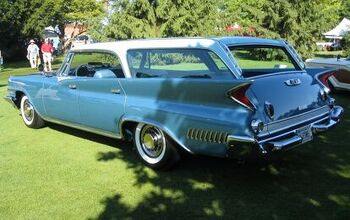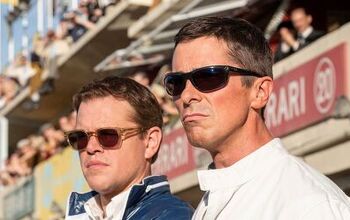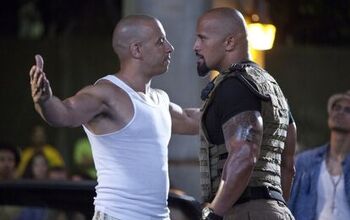Movie Review: Senna
I was just a pre-licensed car nut when the July 1994 issue of Car and Driver passed along the news of Ayrton Senna’s death. Brock Yates’ column in that issue said, “In a sad way, Ayrton Senna’s death dignifies motor racing…He did not die in vain, but rather he made the ultimate sacrifice in seeking his own personally mandated pinnacle of achievement. Tragically, ironically, he may serve his chosen profession more in death than life.” This meant nothing to me at the time. But it means something now.
Fresh from the Audience Award for Best Documentary (World Cinema) at this year’s Sundance Film Festival is director Asif Kapadia’s Senna. Senna differs most notably from most docs in that there are no cutaway interviews–i.e., no talking heads that are a staple of the genre. Footage gathered from 15,000 hours of film, video, and YouTube (much of it from Formula 1’s closely guarded film archive) immerses the viewer in Senna’s late-80s, early-90s life of racing in the prestigious, political and pretentious world of Formula 1 racing.
Much has been made about Senna’s hard racing, but this film presents the softer side of Senna. We see him with his family. We see him charming television reporters. We see him helping underprivileged children. In fact, the portrayal of his relationship with rival Prost makes Senna out to be the guy who just wants to win, while Prost revels in the glitz, politics and good ol’ boys club atmosphere fostered by F1 officials. The Senna we see is quiet, studious, upstanding and spiritual.
The real treat for the audience is the access to Ecclestone’s vast library of film and video from years of Formula 1 activity. The pre-race driver’s meetings, tête-à-têtes with Ron Dennis and Frank Williams and catty interactions with Alain Prost are all there in their intimate glory. The exchanges with FIA president Jean-Marie Balestre expose the politics and egos of the sport. During the pre-race meeting before the 1991 German Grand Prix, Senna and Balestre butt heads over tires lining a chicane. When a desperate Balestre, losing the room, angrily presents the opportunity for a vote, Senna’s side wins. With the proletariat drivers rising up against the Balestre Bourgeoisie, it’s an “enemy’s enemy is my friend” dichotomy–and it’s riveting.
Another gem is Senna and McLaren boss Ron Dennis discussing how to handle the split before Senna races his last race with the team. Dennis says that he wants an amicable and professional split. Senna agrees and offers that he would have done it even without mention. Eagle-eyed hindsight lets the audience know that this is one of their final conversations. The F1 camera crew really pulled a CBS-not-1984-Big Brother act and gave us a moment better than any teary camera confessional. You can see the respect that these two professionals have for each other, knowing an era is over but not that it would be one of their last conversations together.
One the downside, the opportunity to use the F1 footage is the great strength and the great weakness. I want to see Ron Dennis recalling conversations with Senna. If the eyes are the windows to the soul, then the voiceover is just the mailbox. We miss so much not hearing from Senna’s sister Viviane, friend and F1 doctor “Professor” Sid Watkins, Dennis, Williams and even Prost. We miss their faces tell us about the man they remember, loved, hated, respected, cheered and/or cheated. It was a conscious choice by director Kapadia to rely solely on the footage, so he deserves credit for trying something new. Whatever; just sayin’.
Any racing fan owes himself the chance to experience Senna’s career through the eyes of the world he lived in. The people that have been paying attention to Senna are not necessarily racing fans, though. I’ve been to the Sundance Festival a couple of times, and if the snooty, Hollywood Prius-driving greenies can love a movie like Senna, then more than a few of the Best and Brightest should, too.
Senna is out in limited release August 12; wider release starting August 19. A screener copy of the film was provided for this review.
More by David Moore
Latest Car Reviews
Read moreLatest Product Reviews
Read moreRecent Comments
- Brian Uchida Laguna Seca, corkscrew, (drying track off in rental car prior to Superbike test session), at speed - turn 9 big Willow Springs racing a motorcycle,- at greater speed (but riding shotgun) - The Carrousel at Sears Point in a 1981 PA9 Osella 2 litre FIA racer with Eddie Lawson at the wheel! (apologies for not being brief!)
- Mister It wasn't helped any by the horrible fuel economy for what it was... something like 22mpg city, iirc.
- Lorenzo I shop for all-season tires that have good wet and dry pavement grip and use them year-round. Nothing works on black ice, and I stopped driving in snow long ago - I'll wait until the streets and highways are plowed, when all-seasons are good enough. After all, I don't live in Canada or deep in the snow zone.
- FormerFF I’m in Atlanta. The summers go on in April and come off in October. I have a Cayman that stays on summer tires year round and gets driven on winter days when the temperature gets above 45 F and it’s dry, which is usually at least once a week.
- Kwik_Shift_Pro4X I've never driven anything that would justify having summer tires.

































Comments
Join the conversation
Awesome doc, and highly recommended. It paints Senna, perhaps, in TOO positive a light, though. I suppose if it's going to focus on Senna, it should, but it really paints Prost as the bad guy, which is completely unfair. Prost hated the politics of F1 but did a good job of playing the game ANYWAY. He was never more than a mild acquaintance of Belestre, and didn't like much how Belestre ran things... Belestre though, was a big Prost fan because he was French of course. So it was never a big conspiracy against Senna, despite what he thought. Belestre was an ass though. I suggest reading the book "Senna vs Prost" by Malcolm Folley. It tells a much more balanced story.
Top Gear did a segment on Senna in season 16 (or was it 15). I'm looking forward to this film but as with all film I will wait for it on Netflix